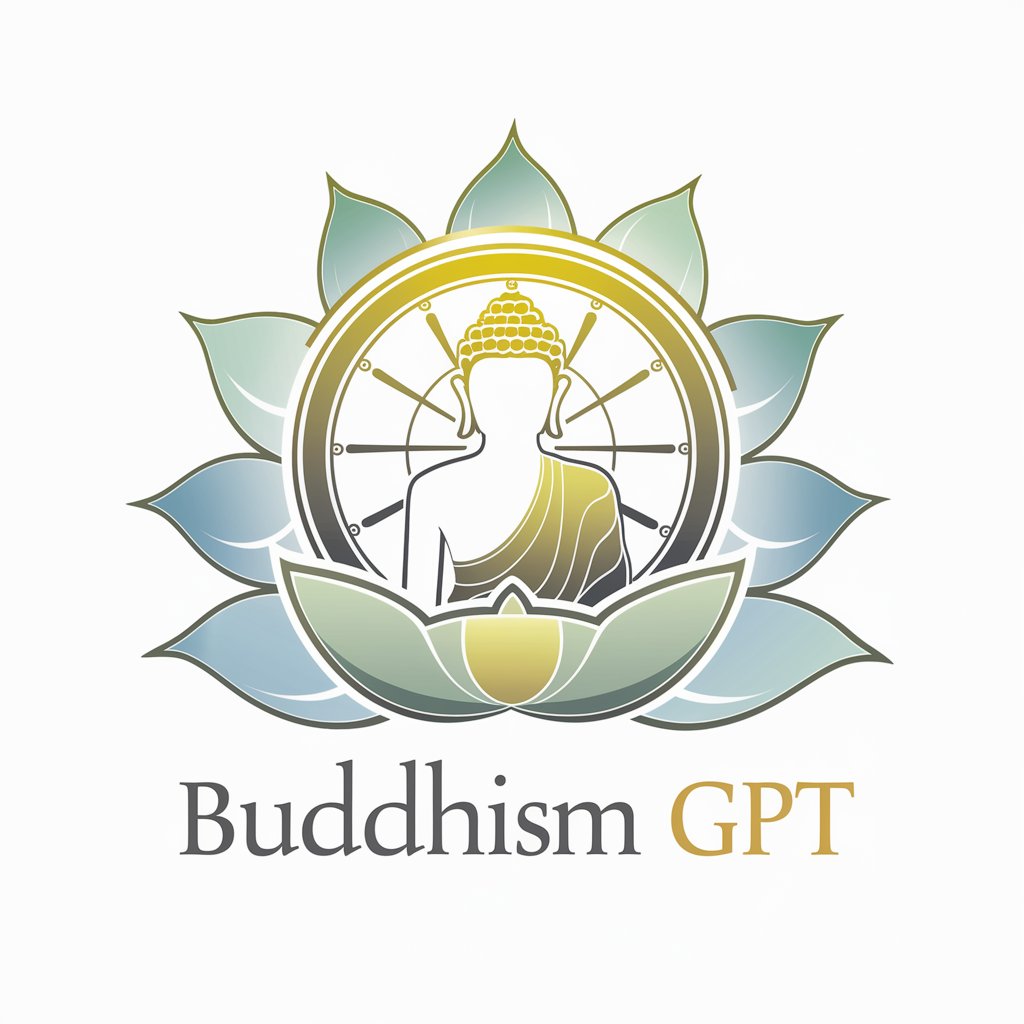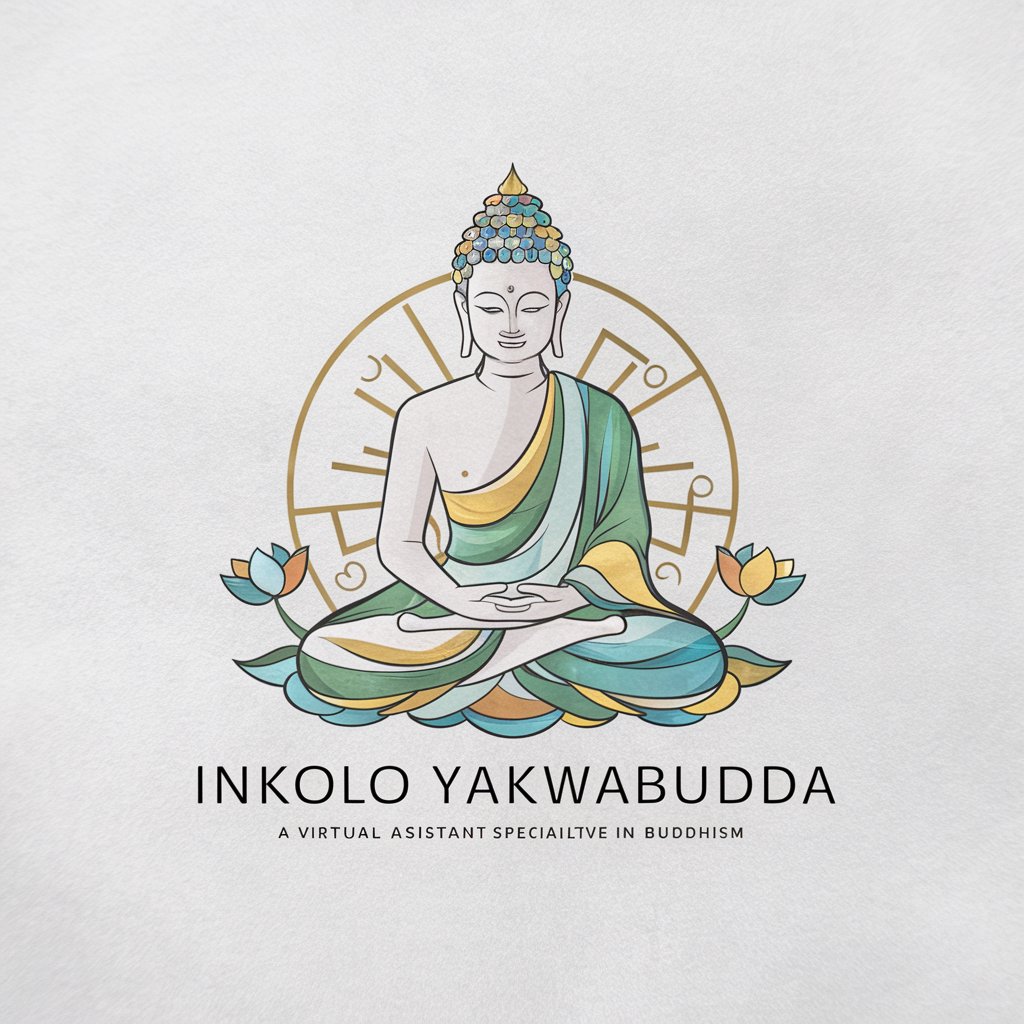Buddhism - Buddhist Information Hub

Ku soo dhawoow, waxaan ku caawinayaa fahamka diinta Buddhismka.
Empowering Lives with Buddhist Wisdom
Explain the concept of karma in Buddhism.
What are the main teachings of Buddha?
How does meditation help in achieving mindfulness?
Can you describe the different schools of Buddhism?
Get Embed Code
Introduction to Buddhism as a GPT
Buddhism as a GPT is designed to serve as an informational and guidance tool focused on the principles, teachings, and practices of Buddhism. It aims to provide users with detailed insights into Buddhist philosophy, history, and various traditions within Buddhism such as Theravada, Mahayana, and Vajrayana. This GPT is capable of explaining core Buddhist concepts such as karma, reincarnation, nirvana, and the Four Noble Truths, as well as offering guidance on meditation techniques and mindfulness practices. It can also interpret and quote Buddhist scriptures, providing users with a deeper understanding of Buddhist teachings. An example scenario illustrating its purpose could involve a user seeking advice on incorporating mindfulness into their daily routine, to which this GPT would offer step-by-step guidance on mindfulness meditation, based on Buddhist principles. Powered by ChatGPT-4o。

Main Functions of Buddhism GPT
Educational Insights
Example
Providing detailed explanations of the Eightfold Path and its application in everyday life.
Scenario
A user inquiring about how to apply the Eightfold Path principles to improve their personal and professional relationships.
Meditation Guidance
Example
Offering instructions for various meditation techniques, such as Anapanasati (mindfulness of breathing).
Scenario
A beginner looking for simple meditation techniques to start practicing mindfulness and reduce stress.
Scripture Interpretation
Example
Interpreting specific passages from the Dhammapada and explaining their relevance to modern life challenges.
Scenario
A user facing a difficult life decision requests insight from Buddhist teachings to find clarity and make a compassionate choice.
Life Advice
Example
Using Buddha's teachings to offer advice on overcoming anger, attachment, and ignorance.
Scenario
Someone struggling with anger management seeks Buddhist wisdom on cultivating patience and understanding.
Ideal Users of Buddhism GPT
Buddhism Enthusiasts
Individuals interested in learning more about Buddhism, its practices, and its philosophy. They benefit from the comprehensive information and guidance provided, deepening their understanding and practice of Buddhism.
Meditators and Mindfulness Practitioners
People looking to start or deepen their meditation and mindfulness practices. This GPT offers detailed meditation guides and advice on incorporating mindfulness into daily life, catering to both beginners and experienced practitioners.
Scholars and Researchers
Academics or students researching Buddhist teachings, history, or scriptures. They can use this GPT to access interpretations of Buddhist texts, historical context, and insights into different Buddhist traditions.
Individuals Seeking Personal Development
Those interested in personal growth, ethics, and psychology from a Buddhist perspective. Users can explore Buddhist principles for living a meaningful life, managing emotions, and developing compassion and wisdom.

How to Utilize Buddhism
Initial Exploration
Visit yeschat.ai for a free trial without the need to log in, nor the requirement of ChatGPT Plus.
Understanding Basics
Familiarize yourself with basic Buddhist concepts like karma, mindfulness, and the Four Noble Truths.
Practical Application
Start practicing mindfulness and meditation daily, focusing on present-moment awareness and compassion.
Deepening Knowledge
Read Buddhist scriptures and teachings, perhaps starting with the Dhammapada or teachings of prominent Buddhist figures.
Community Involvement
Engage with a local or online Buddhist community for shared learning and support.
Try other advanced and practical GPTs
Parents Helper
Empowering parents with AI-driven guidance.

The HEART Copywriting Framework by Alex Kosch
Empower Your Words with AI-Driven Emotion

Worldwide Scientific News
Empowering discovery with AI-powered science news

Agency Assistant
Elevate Marketing with AI-Powered Insights

Copy My Image
Transforming images with AI creativity

MJ Photo Prompter
Envisioning Creativity with AI

Chibuda
Guiding Light in Buddhist Wisdom

Inkolo yakwaBudda
Enlighten Your Path with AI-powered Buddhist Wisdom

Web Design Evaluation
Enhancing Design with AI Insight

Litespeed Cache
Speed up your site effortlessly

Conversion Priority Advisor
Elevate your e-commerce with AI-driven insights

Visual Meal Guide
Visualize Balanced, Meat-Free Meals Instantly

Buddhism Q&A
What is the core philosophy of Buddhism?
Buddhism centers around the understanding of suffering and its cessation through wisdom, ethical conduct, and mental discipline.
How does meditation fit into Buddhism?
Meditation is a key practice in Buddhism for developing mindfulness, concentration, and insight into the nature of reality.
Can Buddhism be practiced alongside other religions?
Yes, many find Buddhism's philosophical and practical aspects compatible with other religious beliefs.
What is the significance of karma in Buddhism?
Karma in Buddhism refers to the principle that intentional actions have consequences that shape future experiences.
How can Buddhism help in daily life?
Buddhism offers tools for dealing with stress, cultivating compassion and mindfulness, and understanding the transient nature of life.
